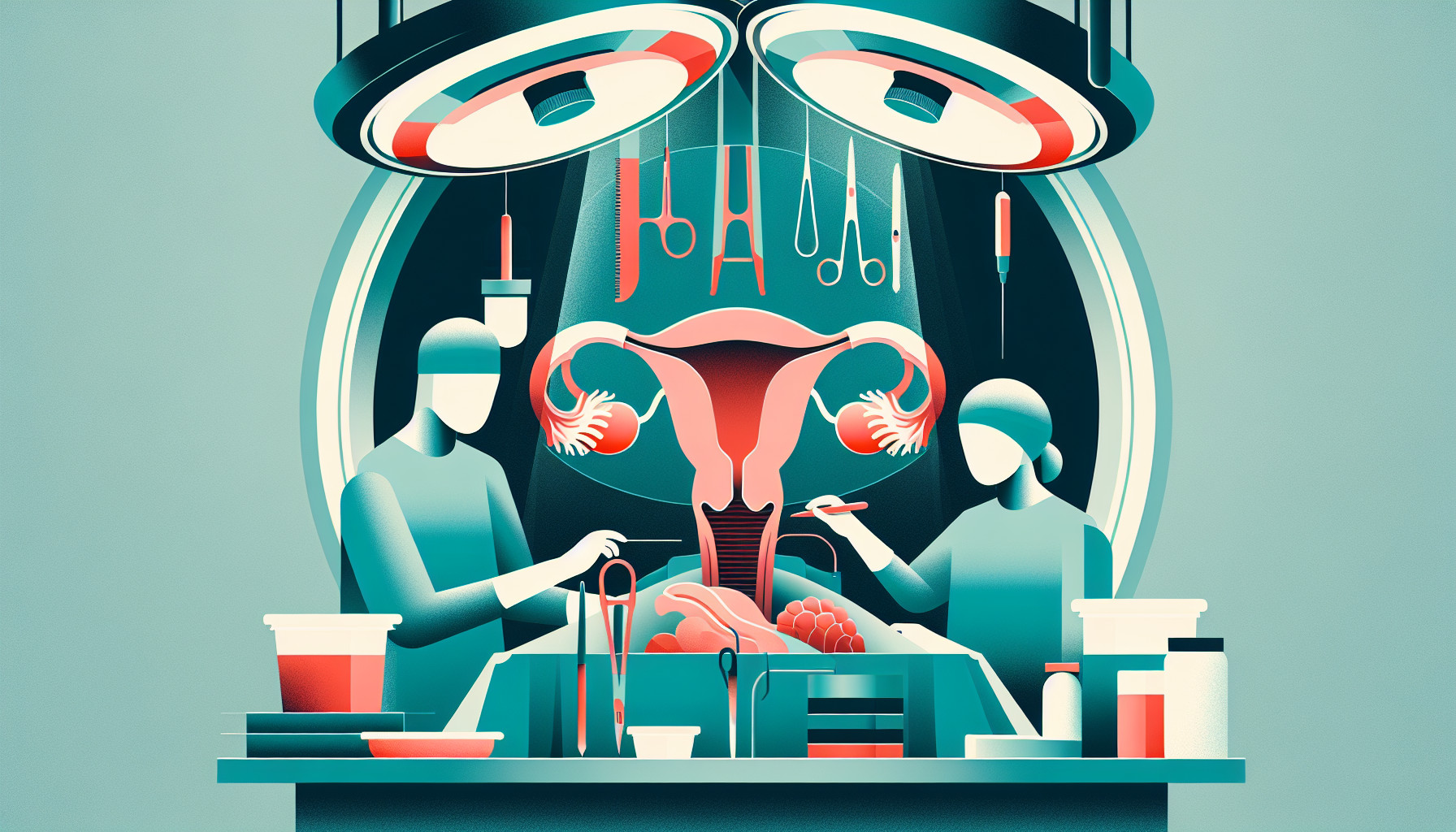Our Summary
This paper discusses the use of hormone replacement therapy (HRT) in women who have had their ovaries and fallopian tubes removed in order to prevent ovarian cancer. Some women have genetic alterations that make them more prone to this type of cancer. These women often decide to have these organs removed after they’ve had their children. However, this surgery causes early menopause, which can lead to hot flashes, mood changes, bone thinning, memory issues, and an increased risk of heart disease. It can also affect sexual function and desire.
HRT is typically recommended for these women, up until the average age of menopause (51 in the UK), provided they have not had breast cancer. This treatment can help reduce the health issues caused by early menopause. If the woman still has her womb, the HRT should include estrogen and progestogen to protect against thickening of the womb lining. If she doesn’t have her womb, only estrogen is given.
Importantly, research shows that HRT for women in early menopause does not increase the risk of breast cancer, even for women with genetic predispositions who have had preventative surgery. Decisions about HRT for women with a history of certain types of breast cancer are made on a case-by-case basis.
If a woman can’t take HRT, there are other options, like behavioral therapy and non-hormonal medicines, but these are not as effective. Regular exercise, a healthy lifestyle, and avoiding symptom triggers are also recommended.
Deciding whether to have preventative surgery and when, as well as whether to use HRT, can be complex. It’s important that women are given all the necessary information to make informed decisions.
FAQs
- What is the purpose of hormone replacement therapy (HRT) in women who have had their ovaries and fallopian tubes removed?
- Does HRT increase the risk of breast cancer in women who have had preventative surgery for ovarian cancer?
- What alternatives are available if a woman cannot take HRT after having her ovaries and fallopian tubes removed?
Doctor’s Tip
It is important for women who have had a salpingo-oophorectomy to discuss their options for hormone replacement therapy with their doctor. HRT can help alleviate symptoms of early menopause and reduce the risk of certain health issues. Women should also consider lifestyle changes and alternative treatments if they are unable to take HRT. Ultimately, the decision should be made based on individual health needs and preferences, with the guidance of a healthcare provider.
Suitable For
Typically, patients who are recommended salpingo-oophorectomy are women with genetic alterations that make them more prone to ovarian cancer. These women often decide to have their ovaries and fallopian tubes removed after they have completed their families. Additionally, women who have a family history of ovarian or breast cancer may also be recommended this surgery as a preventative measure. Women who have already been diagnosed with ovarian cancer may also undergo salpingo-oophorectomy as part of their treatment plan.
Timeline
Before salpingo-oophorectomy:
- Women with genetic alterations that increase their risk of ovarian cancer may choose to have their ovaries and fallopian tubes removed after having children.
- The surgery causes early menopause, leading to symptoms such as hot flashes, mood changes, bone thinning, memory issues, and an increased risk of heart disease.
- The surgery can also affect sexual function and desire.
After salpingo-oophorectomy:
- Hormone replacement therapy (HRT) is often recommended to manage the symptoms of early menopause.
- HRT typically includes estrogen and progestogen for women with a womb, and only estrogen for women without a womb.
- Research shows that HRT does not increase the risk of breast cancer for women in early menopause, even for those with genetic predispositions who have had preventative surgery.
- If HRT is not an option, other treatments such as behavioral therapy and non-hormonal medicines may be considered.
- Lifestyle changes, such as regular exercise and a healthy diet, are also recommended to manage symptoms.
- Decisions about preventative surgery and HRT should be made with all the necessary information to make informed choices.
What to Ask Your Doctor
- What are the risks and benefits of having a salpingo-oophorectomy?
- How will the surgery affect my hormone levels and menopausal symptoms?
- What are the potential long-term health consequences of early menopause?
- What are my options for hormone replacement therapy, and how do I decide which is best for me?
- Will hormone replacement therapy increase my risk of other health issues, such as breast cancer?
- Are there alternative treatments or lifestyle changes that can help manage menopausal symptoms?
- How often should I follow up with my doctor after the surgery and/or starting hormone replacement therapy?
- Are there any specific genetic tests or screenings I should consider before making a decision about surgery or hormone therapy?
- What are the chances of ovarian cancer developing even after the surgery?
- How will my sexual health be affected by the surgery and/or hormone replacement therapy?
Reference
Authors: Manchanda R, Gaba F, Talaulikar V, Pundir J, Gessler S, Davies M, Menon U; Royal College of Obstetricians and Gynaecologists. Journal: BJOG. 2022 Jan;129(1):e16-e34. doi: 10.1111/1471-0528.16896. Epub 2021 Oct 20. PMID: 34672090
